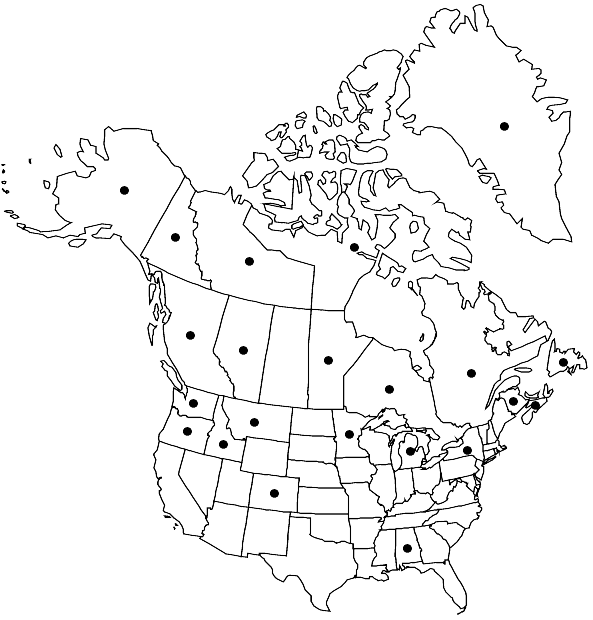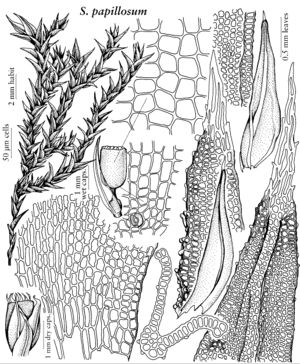Difference between revisions of "Schistidium papillosum"
in J. Amann et al., Fl. Mouss. Suisse 2: 386. 1918,.
imported>Volume Importer |
imported>Volume Importer |
||
| Line 1: | Line 1: | ||
{{Treatment/ID | {{Treatment/ID | ||
|accepted_name=Schistidium papillosum | |accepted_name=Schistidium papillosum | ||
| − | |accepted_authority=Culmann | + | |accepted_authority=Culmann |
|publications={{Treatment/Publication | |publications={{Treatment/Publication | ||
|title=in J. Amann et al., Fl. Mouss. Suisse | |title=in J. Amann et al., Fl. Mouss. Suisse | ||
| Line 31: | Line 31: | ||
-->{{#Taxon: | -->{{#Taxon: | ||
name=Schistidium papillosum | name=Schistidium papillosum | ||
| − | |authority=Culmann | + | |authority=Culmann |
|rank=species | |rank=species | ||
|parent rank=genus | |parent rank=genus | ||
| Line 45: | Line 45: | ||
|publication year= | |publication year= | ||
|special status= | |special status= | ||
| − | |source xml=https:// | + | |source xml=https://bitbucket.org/aafc-mbb/fna-data-curation/src/2e0870ddd59836b60bcf96646a41e87ea5a5943a/coarse_grained_fna_xml/V27/V27_302.xml |
|subfamily=Grimmiaceae subfam. Grimmioideae | |subfamily=Grimmiaceae subfam. Grimmioideae | ||
|genus=Schistidium | |genus=Schistidium | ||
Latest revision as of 22:25, 5 November 2020
Plants in open tufts or mats, usually olivaceous, often with red, yellow, brown, or orange tones, rarely nearly black. Stems 1–10 cm, central strand indistinct or absent. Leaves erect or curved when dry, ovate-lanceolate, sharply keeled distally, (1.2–)1.6–2.4 mm, 1-stratose, sometimes with 2-stratose striae distally; margins recurved to near apex, often denticulate distally, usually 2-stratose, occasionally in more than one row; apices acute; costa percurrent or excurrent as a denticulate or spinulose, often flexuose, usually non-decurrent awn, abaxial surface papillose; basal marginal cells quadrate or short-rectangular, usually trigonous; distal cells short-rectangular, angular, or ovate, 8–10 µm wide, papillose, sinuose. Sexual condition autoicous. Capsule dark red-brown or brown, short-cylindric, 0.9–1.4(–1.75) mm; exothecial cells isodiametric or short-elongate, thin-walled, sometimes with small trigones; stomata present; peristome patent to erect, twisted, red- or orange-brown, 300–500 µm, papillose, entire or weakly perforated. Spores 10–13 µm, granulose or verruculose.
Phenology: Capsules mature late spring to early summer.
Habitat: Rock, rarely on tree bark, in mesic habitats
Elevation: low to high elevations (0-2000 m)
Distribution

Greenland, Alta., B.C., Man., N.B., Nfld. and Labr. (Nfld.), N.W.T., N.S., Nunavut, Ont., Que., Yukon, Ala., Alaska, Colo., Idaho, Mich., Minn., Mont., N.Y., Oreg., Wash., Eurasia.
Discussion
See comments under 5. Schistidium boreale regarding differences among the North American species of the genus with papillose laminal cells.
Selected References
None.
